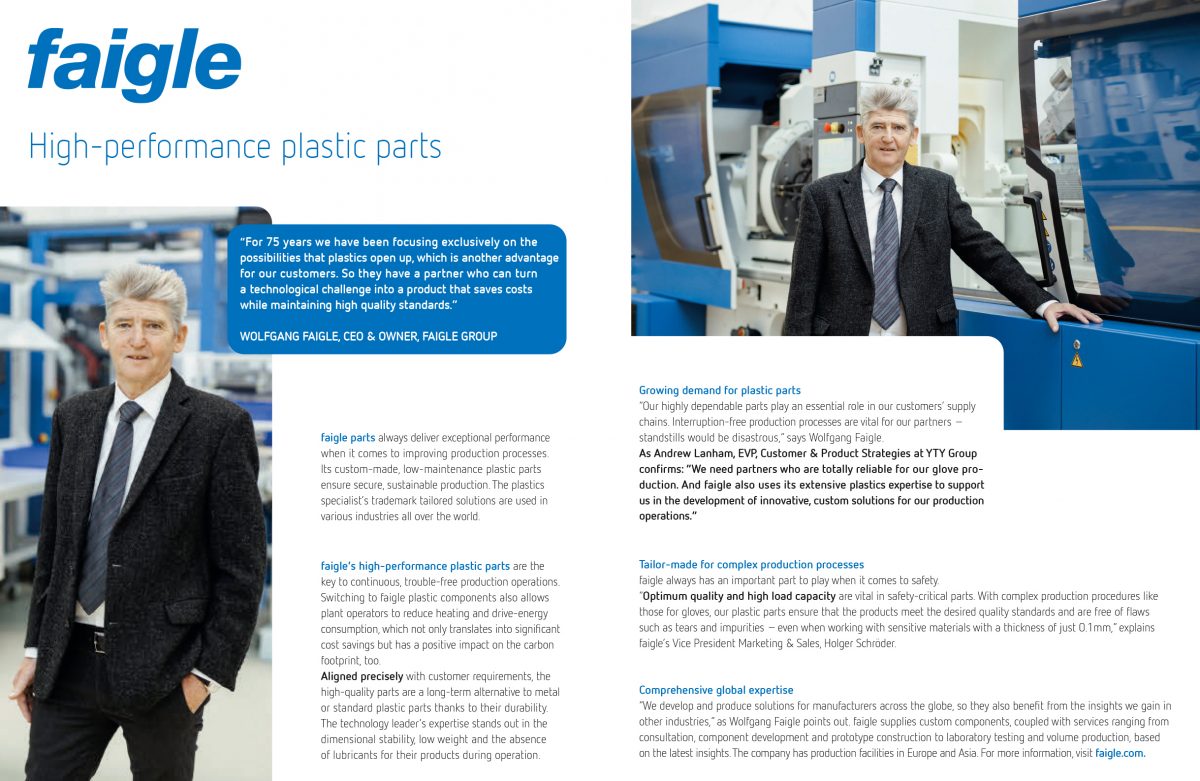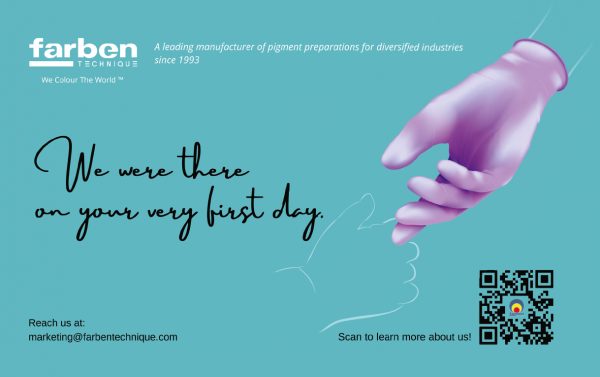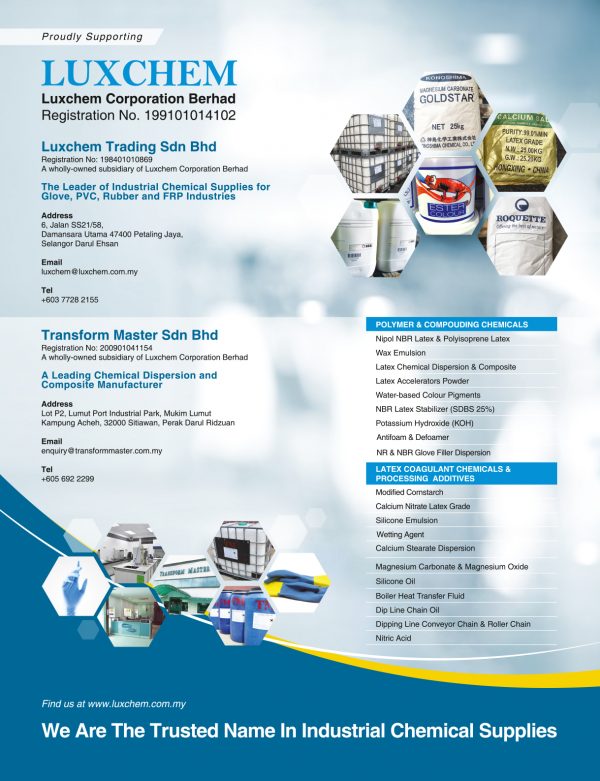Being in the right place at the right time isn’t always just luck. For some, seeing the trend and acting on it can be the difference between an industry leader and an also-ran. Vikram Hora, Chair and CEO of YTY Group, followed his intuition years ago and moved from finance to manufacturing with a company that provides personal safety with every product it makes.
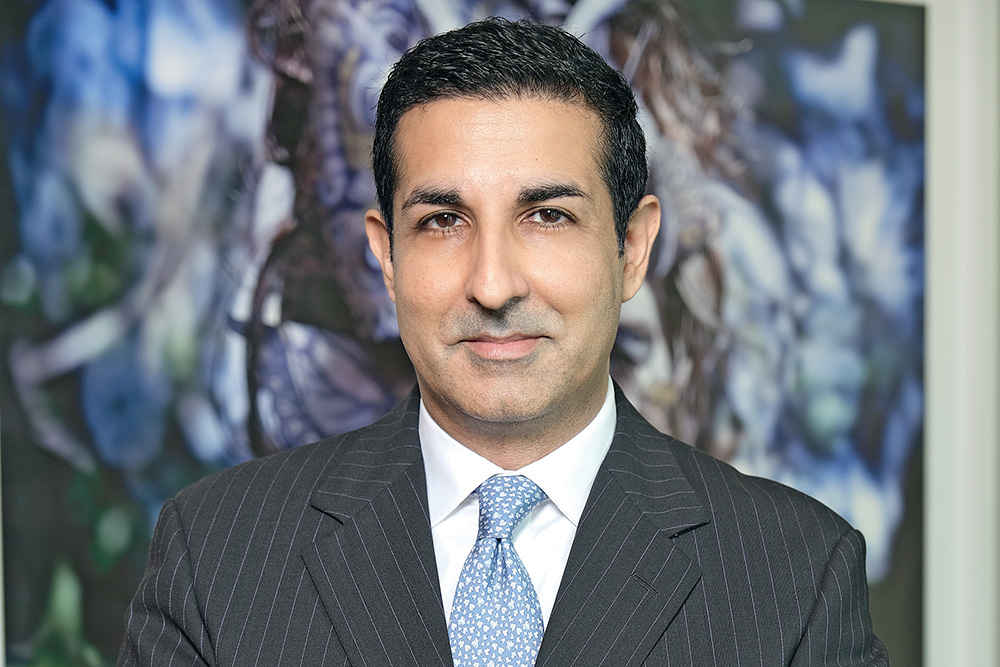
Those products have been crucial as every country grappled with the spread of the COVID-19 virus. By taking a longer view, Vikram was in the right position to drive YTY Group to its status as one of the largest manufacturers in its sector, and cement its future during the COVID-19 pandemic, when demand for its products was unparalleled.
Vikram began his professional career in investment banking with Merrill Lynch in the US, focusing on mergers and acquisitions, and then in Singapore, in corporate finance. He pursued his MBA from the University of Chicago and went back to investment banking with UBS for a number of years in New York City.
With his new family, Vikram moved to Singapore, where he worked at a hedge fund for a year before moving into the manufacture of hand-protection solutions with Medisafe Technologies in 2008.
Indorama, the parent company of Medisafe at the time, ultimately acquired YTY Group in Malaysia, and he has worked as Chair and CEO of the latter since. In that time he has built the company into one of the world’s largest manufacturers and suppliers of synthetic hand-protection solutions, with three production facilities in Malaysia and one in Indonesia.
Vikram’s move from finance to the manufacture of PPE was propelled by several criteria and a desire to do something entrepreneurial. His decision to join Medisafe Technologies, and then YTY Group, has been vindicated by its ongoing growth potential.
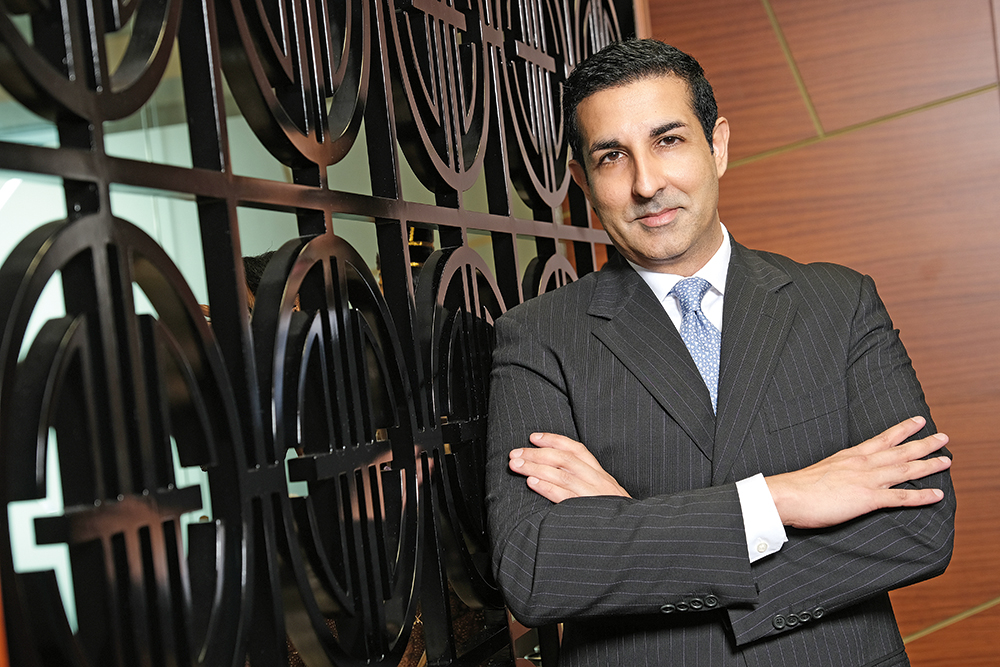
“What I liked about manufacturing PPE is that it is essential for medical procedures and industrial hand protection. I liked the fact that the sector had strong secular demand trends, and that there was a lot of room to grow based on various usage levels around the world. The developed market was more mature, but there were many opportunities in emerging markets that I felt could be tapped. So I thought the overall sector from a demand standpoint was quite interesting,” he tells The CEO Magazine.
The company’s Indonesian business was flourishing and had grown well in his first four years at the helm, but he felt the company, from a scale standpoint, was still some distance behind some of the major companies in the sector. It could continue to grow organically, but to make it into “the big league”, as Vikram describes it, he felt it was necessary to grow considerably in size, and the best way to do that was through acquisition.
Our corporate culture revolves around five core values.
“When we were looking at companies to potentially acquire, what we saw in YTY checked many boxes for us. In particular, we liked the fact that it was one of the first producers of what we call thin-weight nitrile exam gloves, which are now very prevalent in our industry,” he says.
“YTY was one of the first companies to develop and commercialise such a product, so we thought it was at the leading edge of what was then available from a polymer technology standpoint.
“We also liked the fact that it had a blue-chip customer base, and the quality and consistency of its products was evidenced by its operational data. The feedback from customers was also very strong, so when we looked at those factors in aggregate, we felt that this was the best company to pursue. So that is the genesis of why we moved into Malaysia, why we acquired YTY, why we augmented our Indonesian business. It was really about gaining access to technology, gaining access to scale and gaining access to the Malaysian ecosystem, which is where a large part of the glove manufacturing system had existed at that time and continues to remain.”
Trending technology
Vikram and his team focused on “institutionalising” some of the operational processes to maintain quality and ongoing innovation, but as it grew rapidly, they had to create appropriate infrastructure to allow it to scale up judiciously.
That necessitated a change in management perspective as they developed new programs through product life cycle reviews, and the company’s engagement practices with customers.
“We needed to make sure our executives moved from thinking in short-term, one-year blocks into medium- and long-term windows,” he says. “I think that’s a challenge for any business. Part of my job as a leader is to get people to stick their heads up for a minute, reflect on the business and think about some of its long-term trends.”
Excellence in ESG
YTY Group recently received two commendations for excellence in environment, social and governance (ESG). First, by the Malaysian Society for Occupational Safety & Health (MSOSH), based on its assessment of the Group’s GP Lumut facility (part of Green Prospect), and second, a Worldwide Responsible Accredited Production (WRAP) certification for Medisafe Technologies.
That included analysis and implementation of new technologies in its operations. Vikram’s passion for technology, and the benefits it brings, was instrumental in the company’s adoption of a range of innovations that proved a boon for the company.
“I’ve always viewed technology as a great enabler for our business, so experimenting with different kinds of technology such as robotics, 3D printing, IoT, Big Data and AI are all concepts that we are currently trying in various forms. Obviously, our progress in some of these areas is more advanced than in others, but we believe that these are all important technology trends to integrate,” he points out.
“Technology has multiple benefits. At its most basic level, it generates greater efficiency in the organisation because it creates the ability to be more precise, consistent and structured. You don’t have a machine falling asleep or getting tired or forgetting to perform a procedure. Additionally, technology is supposed to make you not just more efficient, but also better at what you do.”
Pandemic pressure
When the COVID-19 pandemic struck around the world, demand for PPE skyrocketed and YTY Group was in the vanguard. However, Vikram says providing for the increased demand was not as straightforward as it might seem. “We were actually at very high levels of utilisation, even before COVID-19,” he reveals.
“We are proud that we serve longstanding customers, and are viewed as extremely quality-focused and customer-centric. That did not give us a lot of room to cope with extra demand from new customers and when COVID-19 hit. Our focus, therefore, has really been to serve longstanding customers – those who have stayed with us, supported us and who we’ve grown with together over many years. This focus has remained, even as we build out new capacity.”
Despite these constraints, Vikram believes YTY Group has become more nimble due to a dynamic pandemic environment. As a result of almost daily changes, updated edicts and rules, and new situations to deal with, its ability to receive a call, discuss the situation, come to conclusions and execute a viable plan has been exemplary, and the overall time frame for decision-making is now much shorter.
“There’s obviously an irony to this, in the sense that we produce PPE, but at the same time, we have to make sure our own staff remain safe and healthy as they produce them,” he suggests.
Despite the added pressure of greater demand and tighter time frames, the pandemic has been both a test and a reinforcement of the relationships between YTY and its suppliers, distribution networks and customers.
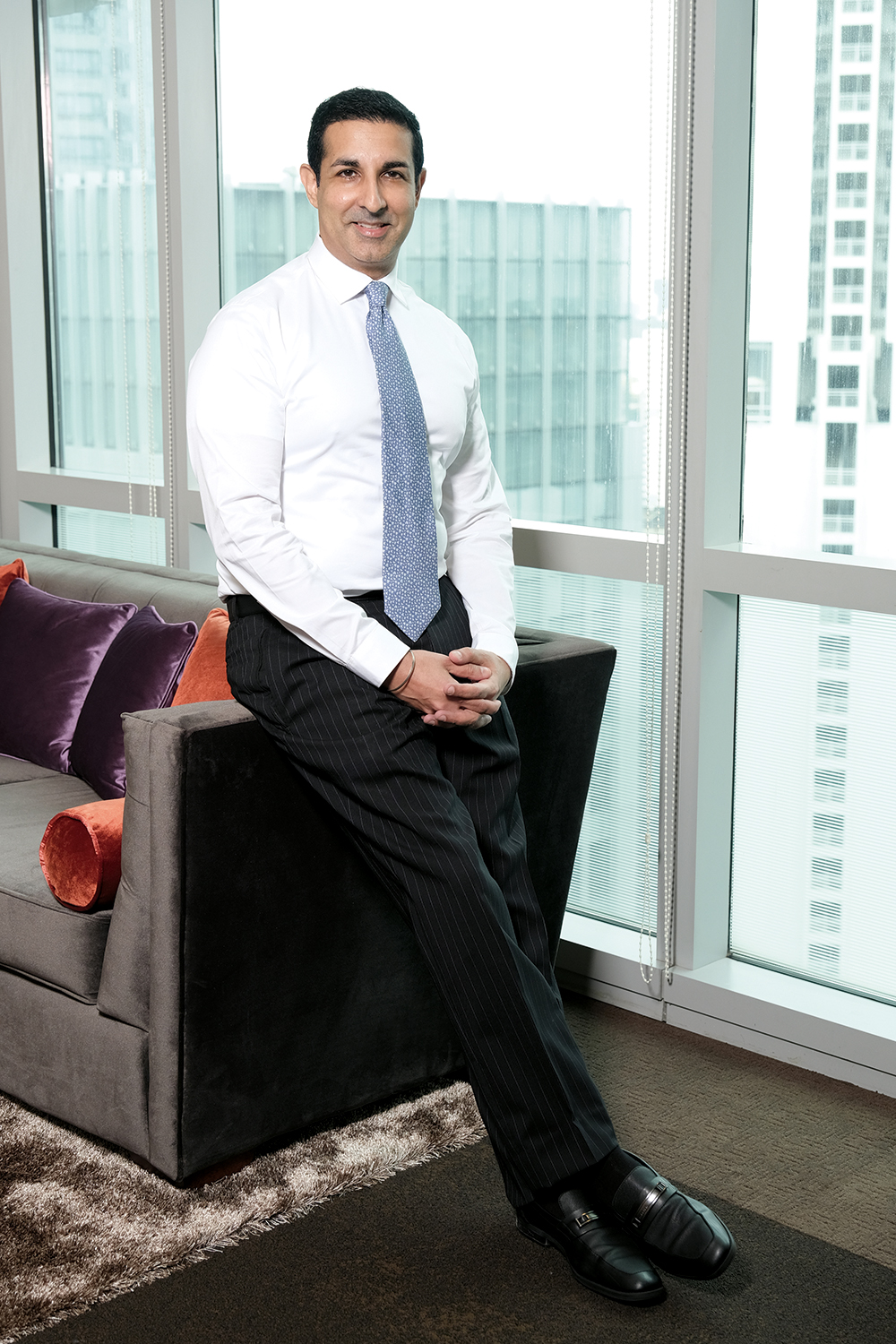
Vikram has been encouraged by the Group’s even-handed response to the situation, and the company’s market presence is assured. “The pandemic deepened and reinforced those relationships. Some of our supply base was originally asked to shut down when the pandemic first hit, but with our assistance many of them were able to get back online and quickly resume their supply to us, he says.
“Our overall supply relationships are therefore extremely strong. We’re in regular contact with all our suppliers, and think about our supply relationships as long-term partnerships, so we’ve never had a situation in this past year where our suppliers have decided, for opportunistic reasons, to move in a direction to the detriment of YTY.”
It is the same with the company’s customer base. YTY is using this opportunity to solidify relationships with customers who appreciate the position the company has taken, and the fact that it is being very disciplined with its business plans and pricing structures, rewarding those customers who have remained consistent buyers.
“Just as we are very closely focused on suppliers that have stood by us, we hope that based on the approach we have taken with our customers, our customers will continue to grow with us as COVID-19 demand normalises,” Vikram affirms.
Core values
These solid relationships are a reflection of the company’s core values, Vikram says, which are a central tenet of the company’s growth strategy both internally and externally. “Our corporate culture revolves around five core values,” he says.
“Those core values are hard work, excellence, honesty, positivity and being team-oriented. We developed these core values some years ago, and we’ve tried very hard to infuse them into the organisation.
“We expect all of our leadership team to demonstrate these core values. We focus on the importance of these values as they relate to the fabric of the culture that we’re trying to create. For me, as I am not at the factory 24/7, one of the key strengths I have in being able to manage this business and achieve our success is to make sure that our culture is exactly as we intended it.
“That is, the culture reflects these attributes, that people imbue these attributes in their own behaviours, they act with honesty and empathy, and give the task at hand the best they can do. There are lots of related attributes that we derive from these five core values, but this is ultimately what binds the organisation together.”
Strength in leadership
Vikram’s experience has taught him that inspiration comes from the top, and it’s his role as Chair and CEO to ensure he provides the kind of leadership that unites the company.
Leadership really can be learned, but it does require a dedicated focus and a constant amount of self-investment.
Unity and a common belief in the company’s future growth and direction come from a full complement of employees engaging with and adopting the strategic plan he has developed with his leadership team for both the short- and long-term.
“Probably the hardest aspect of my job is trying to look around corners, as I like to say, and trying to reflect on those forward trends very carefully,” he says.
“What will our business look like? What are some of the things that we have to deal with, not just in the next 6–12 months, but in the next 6–12 years? Those are some of the things I try to focus on, and hopefully my employees appreciate that as well.
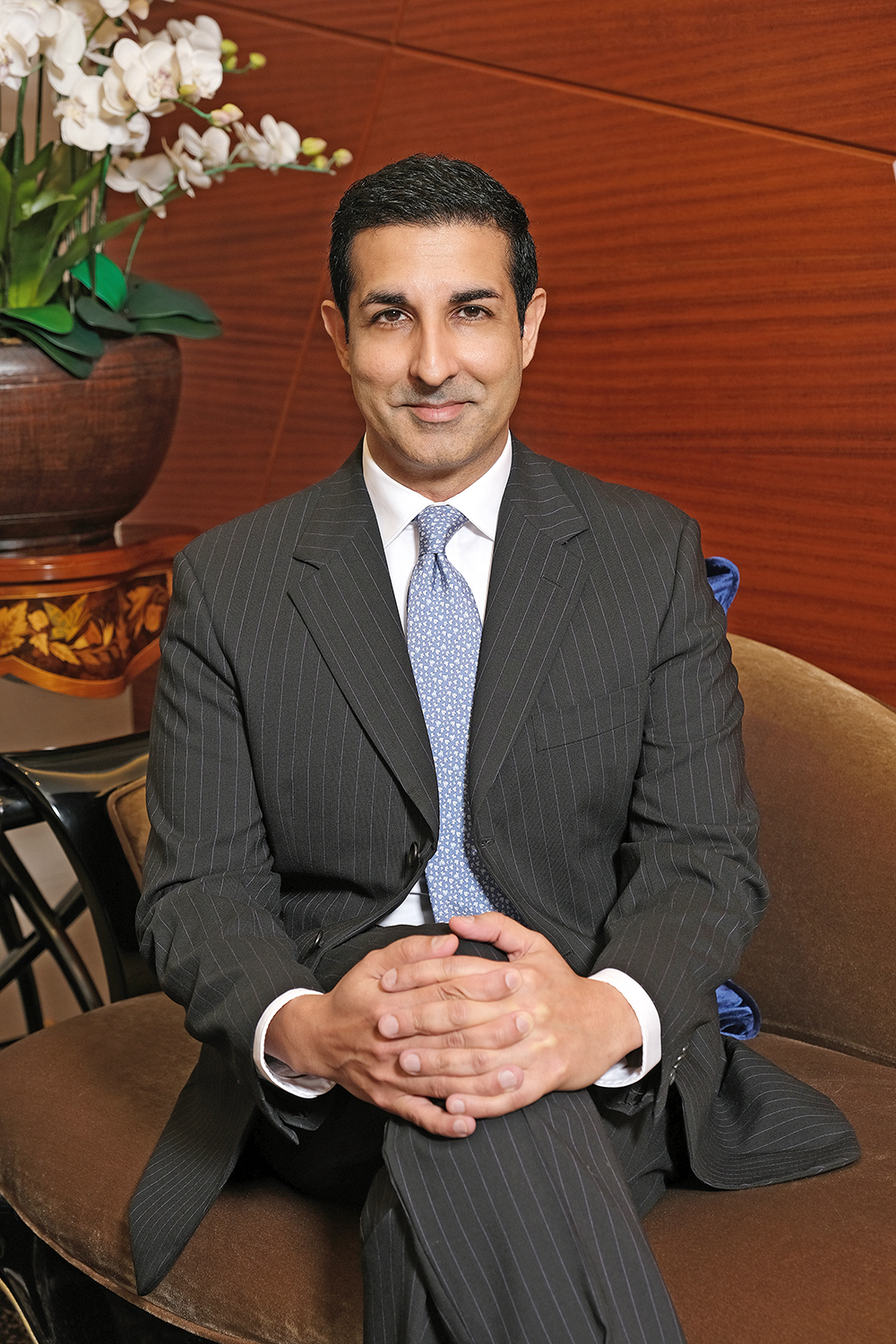
“I look on leadership as a skill, and it’s something that I spend a lot of time thinking about – particularly in relation to how to create excellent leaders within the organisation. I do believe that leadership can be learned, but it’s not innate and needs to be skilfully built and carefully honed over time.”
It’s important for a leader to provide a very clear sense of direction, Vikram insists, and when tough decisions need to be made, to make those decisions rather than vacillate.
“We need to have the ability to make a very clear, concise judgement based on the information at hand, and then explain those decisions in an articulate and transparent manner. That’s something that I think I do quite well,” he says.
I look on leadership as a skill, and it’s something that I spend a lot of time thinking about.
His first priority is to create a sense of cohesion and solidarity among his team. He also tries to be a very inclusive leader, he hopes, and attempts to be apolitical in his decisions. “I try to bring people along for the journey, and let them know why we’re doing what we’re doing,” Vikram explains.
There are inherent challenges in this, of course, and Vikram knows not all of his team will agree with him all the time. But he says consensus comes from knowing the facts and using them to the greatest benefit of the company, with input from everyone.
“Recognising that you are with some very smart people is critical. You can see how they think and how they act with clients, but also internally with teams, making it a very high-performing environment.”
Vikram’s view of leadership roles developed over many years, with memories of his former managers particularly prescient. His time in investment banking in a junior role as an analyst was a very formative period for him. There were many valuable attributes that he learned then and still carries with him today.
An example of that, he says, is attention to detail – the ability to focus on presentation, and recognise that aesthetics and format do matter, especially when dealing with external partners. He attributes to his mother some advice when he was very young, which still applies in business, and is as simple as being “nice”.
“My mother said ‘be nice’, because there are lots of mean and unscrupulous characters, and the world continues to need nice people. I think that even if you are delivering a firm message, you can deliver it in a nice manner, so I never shout or raise my voice, or deliver messages in a negative or hostile manner.
“I also think the advice that really resonates with me is when you look at a situation or an incident, think about what really matters. The vast majority of stuff – 95% of it – doesn’t matter. At the end of the day, it can be painful in the moment, but it’s not going to fundamentally change your life or alter who you are as a person. So the 5% that does matter is what one should really care about,” Vikram says.
“Leadership really can be learned, but it does require a dedicated focus and a constant amount of self-investment. And that’s a lifelong investment.”
Proudly supported by:
